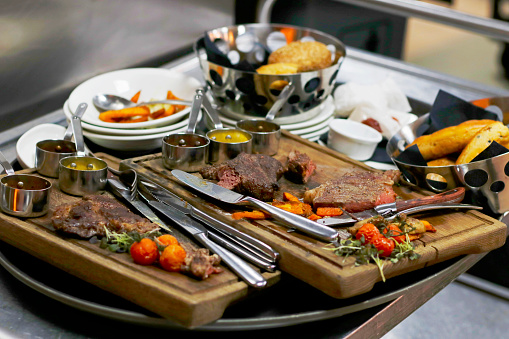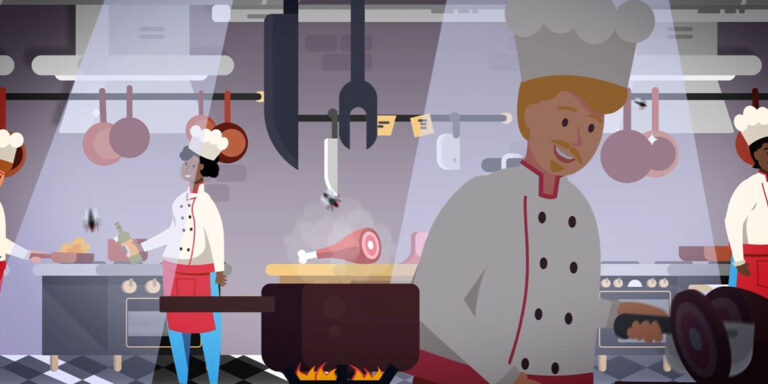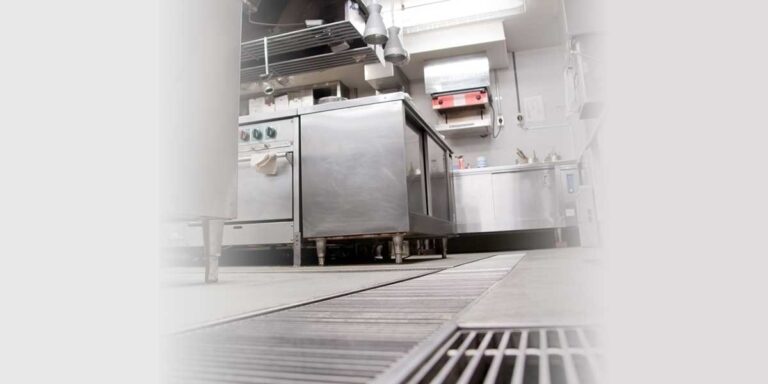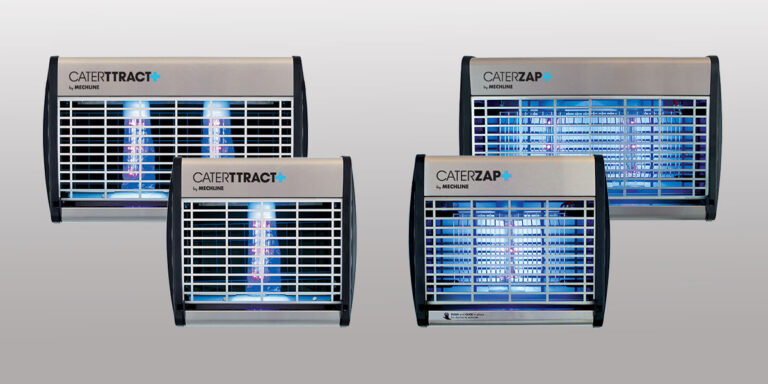As a whole, the UK generated 9.5 million tonnes of food waste in 2018 – and the catering industry made a hefty contribution to that figure. Although some progress has been made in the years since these statistics were collected, the battle to reduce food waste is ongoing. From an ethical and environmental perspective, everyone has a responsibility to limit global food wastage.
Regulation exists to help guide restaurant owners on the appropriate measures they can take to ensure that food is disposed of in a safe and hygienic manner. A further driving force behind these regulations is the necessity for the UK to meet international targets and obligations to decrease biodegradable waste piling up in landfills and contributing to greenhouse emissions.
Voluntary initiatives, led by the Waste and Resource Action Programme (WRAP) and the Department for Environment Food and Rural Affairs (DEFRA), are amongst the organisations that offer support and guidance to food businesses and households on the most effective methods for disposing of food waste. Ultimately, your commitment to proper waste food management will reflect favourably on your business. The public will appreciate your consideration for the environmental impact of waste food. Equally, the implementation of good waste disposal and management practices will result in more economical use of your valuable resources.
What is catering waste?
The food business industry has a significant waste output. Naturally, this includes packaging such as cardboard, plastic and glass, as well as other materials associated with storage or maintenance.
Although most catering professionals have a good understanding of what can be disposed of in the general bin, bad habits can creep in over time –– particularly during busy periods when staff are rushed off their feet to sanitise the kitchen, clean plates and prepare for the next sitting. The outcomes, however, are never favourable. There’s a good reason (contamination, infection, foul odours, pollution) why certain food waste types can’t go to landfills or be repurposed for animal feed, and you should always do your best to stick to the rules.
Apart from the obvious food waste types that accumulate during the preparation phase, such as bones, trimmings, spoilage and expired ingredients, as well as chunky leftovers from your customers’ plates, some other sneaky remnants and byproducts are also part of your food waste pile up. Fats, oils, grease and starches (FOGS) are generated by any establishment that prepares and serves food. If mismanaged, FOGS can become a serious (and expensive) problem for your drainage system, not to mention the fact that you’ll be helping to make your local sewage network an even more hospitable environment for vermin and harmful bacteria, and at risk of blocking.
Why food waste disposal regulations are important for your restaurant
Being compliant with restaurant food waste disposal regulations will not only encourage you to practice greener, more ethical ways of managing former foodstuffs, but it will also act as a cost-saving exercise –– and who doesn’t want to save on unnecessary expenditure?
Although there are some more specific restaurant food waste disposal regulations, the legislation around this topic is dispersed amongst many different, interrelated categories. This is because food waste doesn’t only have an environmental impact; it also affects the health and wellbeing of individuals directly connected to your business and can disrupt the community you operate in when it becomes a nuisance. For example, when improperly managed, raw meat waste can attract vermin or act as a catalyst for bacterial growth, encouraging the spread of disease.
As a restaurant owner, it’s essential to frequently consult with your local authorities to ensure that your establishment always follows best practices for food waste disposal.
Should restaurant food waste go to landfills?
Continuously directing your food waste to landfills is not a suitable long term solution. In the fight against greenhouse emissions, the UK government aims to eliminate food waste from landfills by 2030 and urges all businesses to use the Food Waste Hierarchy to prioritise prevention, redistribution and recycling over disposal. Resources are available to help hospitality businesses like yours to identify food waste producing hotspots and take actionable steps to start making a positive change to your food waste output.
With every effort and good intention to prevent and reduce food waste, the reality is you will most likely end up with some to dispose of – and it’s important you understand your disposal options. Disposing food to landfill is always the least preferred option!
Food waste can be collected for Anaerobic Digestion (AD), where bacteria is used to recycle this organic matter into biogas and fertilisers, but you should always consider if this is the best economic and environmental solution for your site. When you factor in the storage needed and transportation costs, alternative technologies may provide a more practical and environmentally friendly solution – and can also be used to complement AD.
Have you tried on-site waste digestion?
Onsite digesters offer a green way of handling food waste, without relying on specialist collection services. The scalable solutions use aerobic digestion and naturally occurring microorganisms to empower you with a safe and effective way to manage food waste. Rather than sending it to landfill, organic food waste is digested and turned it into wastewater for safe disposal down the drain – allowing local water treatment plants to reclaim the water and return it to the environment.
This method of waste management doesn’t attract vermin and results in reduced waste collection costs. Your staff will no longer have the hassle of dealing with solid food waste, and storing it for collection, vastly improving hygiene in your commercial kitchen. Typically, these on-site solutions are fitted with sealable lids to prevent nasty odours from escaping.
Research shows that onsite digestion is an environmentally preferable process and a practical solution for establishments that aren’t in a convenient location for frequent waste collection or where storing large quantities of food waste poses a risk.
How do you store restaurant rubbish?
To avoid former foodstuffs from piling up and posing a risk to your staff and customers, it’s crucial to have a food waste sorting system that distinguishes between each waste type category. Staff have a considerable role to play in the fulfilment of how successfully this system operates, as does your third party waste collection service provider if you make use of one.
Quick tips for storing and managing restaurant rubbish:
Food waste should always be kept in closed, durable containers – leaving bags of rubbish out on the street will not only beckon pests, but the bags could potentially leak and cause bad odours. Not exactly appetising for passers-by. To avoid this, make sure you store your food waste in the appropriate bin so that it doesn’t contaminate other recycling streams. Lingering odours in your kitchen can be addressed with an effective air and surface sanitation system, although it’s always important to address odours at the source.
Have your bins emptied and cleaned regularly – including recycling bins. Restaurants generate a variety of waste types that may inevitably come into contacthttps://www.mechline.com/product/hygenikx-hgx-w-15-r/ with one another, speeding up the decomposition processes and growing increasingly attractive to pests. Raw meat and fish byproducts, cooking oil and packaging, for example, should be collected as soon as possible from your site.
Use separate bins that are clearly labelled according to the category of food waste they contain. ABP (animal by-products) waste bins must be easy to identify. You can use a colour coding system to make it easy to distinguish between the different food waste types stored. These bins should also be kept in a designated area.
Avoid cross-contamination by keeping bins away from food preparation areas.
Making sure that rubbish is correctly and safely stored is hugely dependent on the training you provide your staff. Instil a sense of responsibility about sticking to best practices and ensuring that all the necessary steps and procedures are followed.
What do you send down the drain?
In the UK, there are specific rules and regulations about what can be sent into the public sewage system. It is advised that you have a proper FOGS management solution in place, proportionate to the amount and type of waste your restaurant produces. Without it, you’re likely to turn neighbours into disgruntled adversaries with little tolerance for the bad odours and blockages caused by your restaurant – certainly not a winning look for a restaurant business.
A good approach is to take adequate measures and ensure that you manage FOGS responsibility. A simple installation, such as a food waste strainer, for example, could help to prevent unwanted food particles from entering the drain. It’s essential to stay up to date with the rules and regulations that apply in your part of the UK. To help you out, we’ve highlighted some of the important regulations you are likely to encounter.
FOGS management regulations:
- Businesses that serve hot food should install a grease separator or other effective means of grease removal (The Building Regulations 2010 Drainage and waste disposal (2015 edition)). The Water and Sewerage Companies (WaSCs) can’t legally oblige you to have a specific FOGS management system in place, but they can take action if your premises is identified as the cause of impediments and blockages in the local wastewater system.
- In accordance with The Environment Protection Act 1990, you may be required to show compliance; this means that you should keep a record of the kitchen waste collections you arrange with your licensed contractor.
- The Environmental Protection Act 1990 classifies unpleasant odours relating to food waste as a statutory nuisance. If your restaurant does not manage this issue, you may leave yourself open to legal action being taken against you.
- It’s your responsibility to ensure that leftover cooking oil is collected by a food waste management specialist and not sent to a landfill; this is in accordance with the animal by-products regulations.
- Your local authority may request to inspect your catering business if they have cause to believe that your drainage system is inefficient or the source of a problem (Section 59 of the Building Act 1984).
The Foodservice Equipment Association has a helpful guide that further expands on these regulations. If your FOGS are identified as the source of a local sewage problem, in particular after it has been advised that you install a FOGS management system, you may receive a fine.
How to implement a food waste management strategy
Prioritise prevention over disposal
In reality, your food waste management plan should start way before you end up with a tonne of former foodstuffs. Excess food waste is often generated as a result of poor planning – over-stocking on perishable ingredients, for example, and not repurposing or reusing items. Try not to buy more than you need and always check the use-by date. Did you know an air and surface sanitiser can prolong the shelf-life of fresh perishable foods?
Store food correctly
Your fridges and freezers should always run at the optimal temperature to prevent food from spoiling prematurely. Dry storage cupboards should be cleaned regularly, and stock rotated so that ageing ingredients don’t get pushed to the back.
Donate surplus food to charity
You may want to consider partnering with a charity so that any extra food you produce can go to needy individuals instead of the bin – they’ll often take care of the collection part too. If you have excess ingredients that won’t get used before expiry and are fit for consumption, give them to someone who’ll have an immediate benefit.
Dish the right-sized portion
Larger portions don’t necessarily mean better food. Understand what the perfect portion size looks like for your customers, and only serve the amount of food they’re likely to consume. Inevitably, there’ll be leftovers, and in those cases, patrons should be encouraged to take them home.
Have a plan for ABPs and FOGS
APBs and FOGS are part and parcel of the restaurant business. To ensure that you comply with food waste disposal regulations, you should follow these simple steps:
- Ensure that you dispose of your food in a safe manner that makes use of the correct equipment and waste management system.
- Check that your employees understand and adhere to your food waste management plan. Promote a culture of prevention and disposal of food in an environmentally friendly manner.
- Manage FOGS with industry-standard, accredited systems, effective in commercial kitchens.
- Engage the services of a reputable commercial waste collection company that will stick to a regular schedule and supply you with all the necessary paperwork to prove compliance.
The regulations around food waste management are there to protect the environment, infrastructure and society. It’s also a smart business decision to look at how your cooking, storage and food waste disposal process contributes to the global issue of mounting waste. Your initiatives will help you to avoid fines, run your kitchen more efficiently and keep your staff, customers and community safe.
A successful food waste management plan that incorporates the regulations applied to the catering industry will use a good balance of effective technologies as well as forward planning to ensure that you maximise the value you’re able to get from your ingredients and your operational process as a whole. Our team of experts can discuss the right food waste management solutions for your commercial kitchens here.








